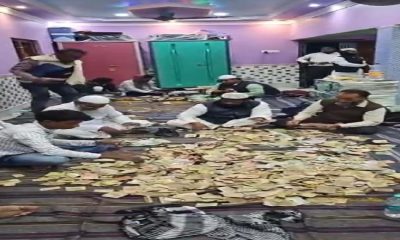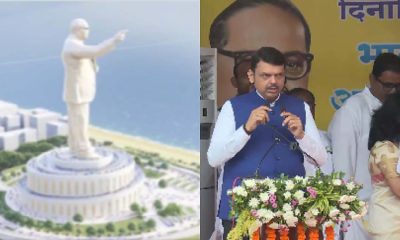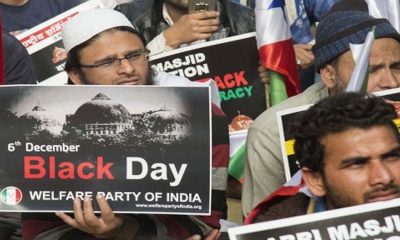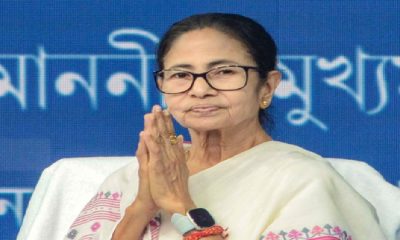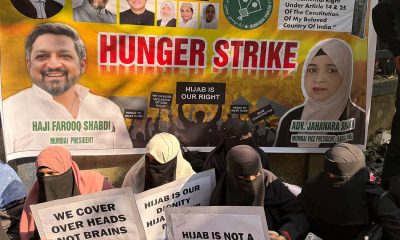Maharashtra
Maharashtra: 29-Km Long Thane Integral Ring Metro To Have 22 Stations; Know Routes, Project Details & Updates Here
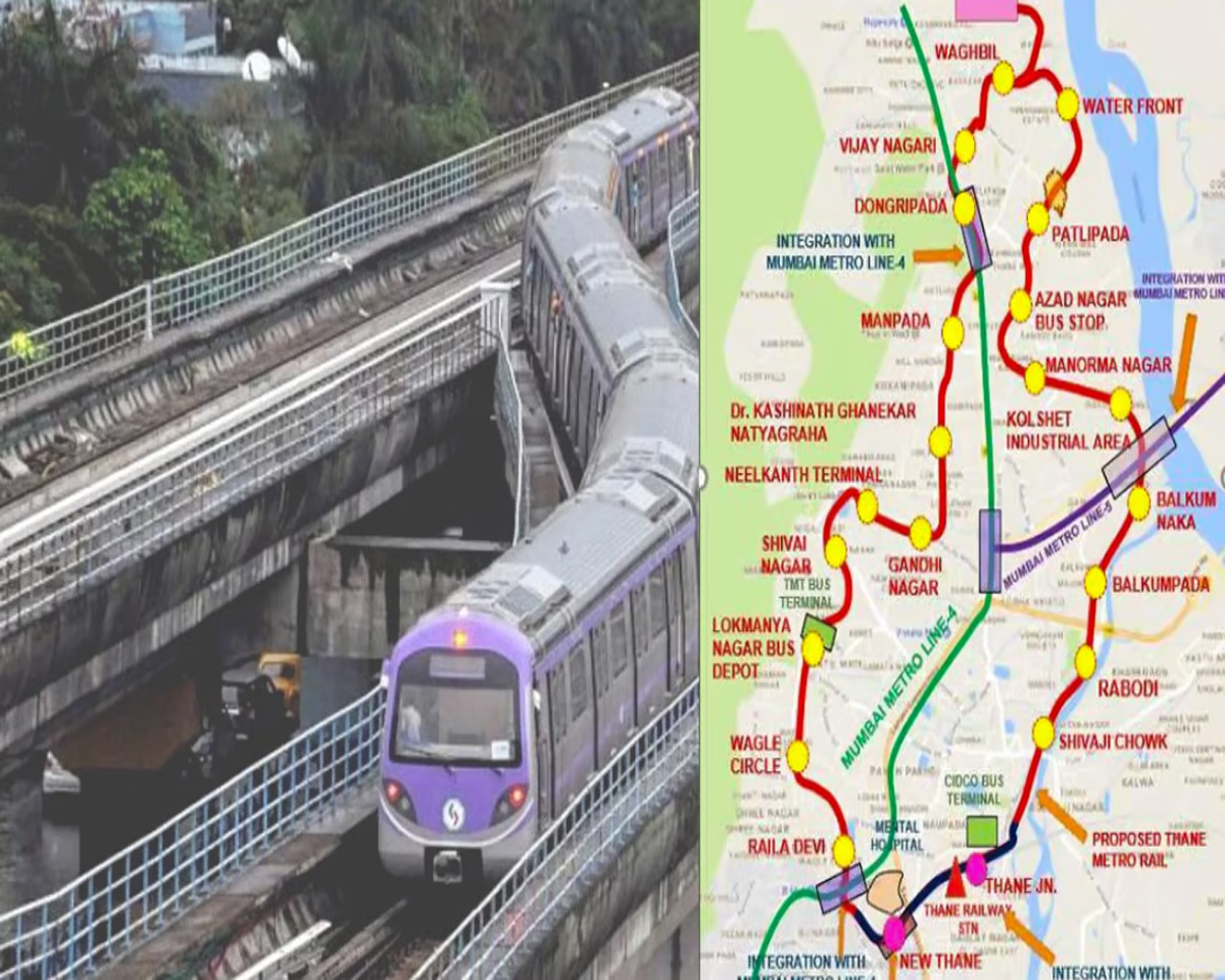
Mumbai: To revolutionise the landscape of Mumbai Metropolitan Region (MMR), the Maharashtra cabinet chaired by CM Eknath Shinde approved the Integral Ring Metro Rail Project in Thane earlier this week. The project will not only improve the inter-connectivity within Thane city, but the corridor connecting major business hubs will provide an effective transport option for a large section of employees. The project at an estimated cost of Rs 12,200.10 crore is likely to be completed by 2029. As the tendering for the Thane Integral Ring Metro is in process, let’s have a look at the project details, stations, route map, executing agencies and other information.
Master Plan Of Thane Ring Metro
The Maharashtra Metro Rail Corporation Limited (MMRCL or MahaMetro) will spearhead this groundbreaking project, marking its first greenfield venture in MMR. The project, which was under planning from seven years, was previously undertaken by Thane Municipal Corporation.
The Integral Ring Metro route will criss-cross some of the most congested areas of Thane, including Wagle Estate, Manpada, Waghbil, Balkum, Rabodi, and Thane Railway Station. At first stage, detailed designs will be prepared for six stations: Waterfront (Hiranandani Estate), Waghbil, Vijay Nagari, Dongripada, Manpada, and Dr Kashinath Ghanekar Natyagruha. After the geo-technical investigation, bids to design the remaining 14 stations will be floated.
The 29-km corridor will run along the periphery of the west side of Thane city with 22 stations. The network is encompassed by Ulhas River on one side and Sanjay Gandhi National Park (SGNP) on the other. The project is primarily an elevated corridor with 2 to 3 km of underground network.
The 22 stations at the Thane Integral Ring Metro would be – Raila Devi, Wagle Circle, Lokmanya Nagar Bus Depot, Shivaji Nagar, Neelkanth Terminal, Gandhi Nagar, Dr. Kashinath Ghanekar Natyagraha, Manpada, Dongripada, Vijaynagari, Waghbil, Waterfront, Patlipada, Azad Nagar Bus Stop, Manorma Nagar, Kolshet Industrial Area, Balkum Naka, Balkumpada, Rabodi, Shivaji Chowk, Thane Junction (underground) and New Thane (underground).
The MahaMetro expects that the project would result in total daily ridership for the years 2029, 2035 and 2045 by 6.47 Lakh, 7.61 lakh & 8.72 lakh passengers respectively.
MahaMetro has received proposals from five consultants to design approximately 8km of the total corridor. According to reports, the companies willing to provide design for the project include RITES Limited, STUP Consultants, LKT Engineering Consultants, and two French companies through their Indian arms – Enia Design and Systra MVA Consulting. Of which, the STUP Consultants have been the lowest bidders.
Bidding process is underway for the Environmental Impact Assessment (EIA) study & preparation of the Environmental Management Plan and Social Impact Assessment (SIA) study and preparation of social management implementation plan, rehabilitation & resettlement (R&R Policy) Plan.
While, bids for General Construction for Thane Metro have been invited.
Maharashtra
Thane To Face 30% Water Cut From December 9 After Major Pipeline Break At Kalyan Phata; Check If Your Area Is Affected
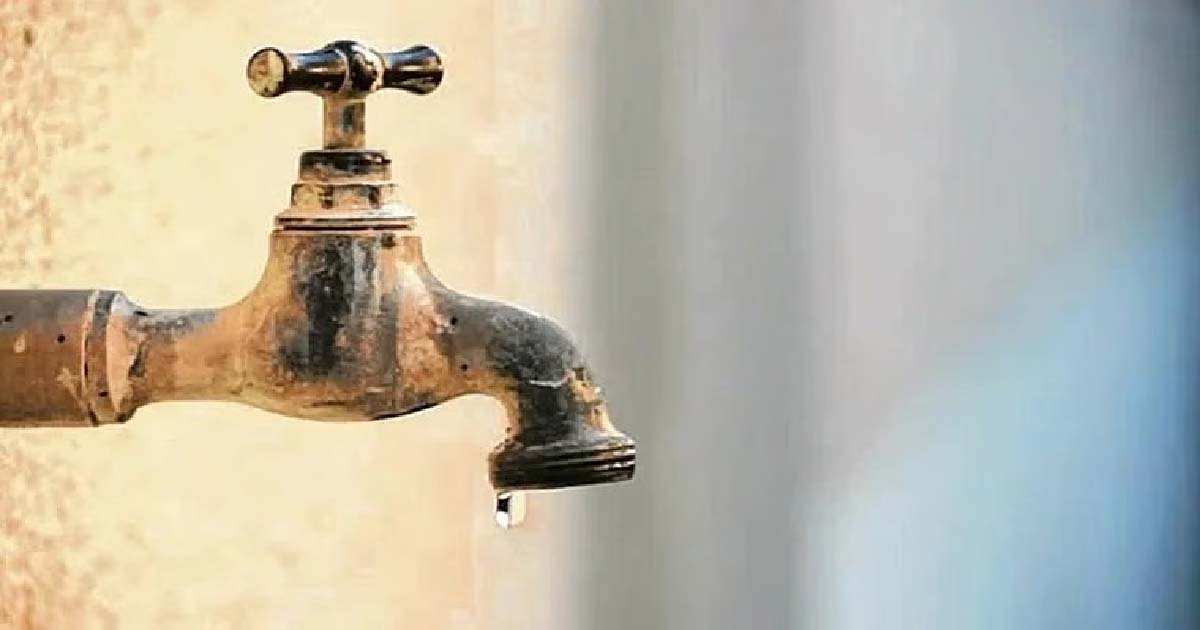
Thane, December 9: After Mumbai witnessed a 15 percent water cut earlier this week, residents of Thane are set to face an even steeper reduction in supply. The Thane Municipal Corporation has announced a 30 percent water cut across the city with effect from Tuesday, placing lakhs of citizens under severe water stress.
The major disruption follows a breakdown in the 1000 mm diameter water pipeline that supplies water to Thane from Pise Dam to the Temghar Water Treatment Plant. The pipeline reportedly burst at Kalyan Phata on the morning of Saturday, December 6, during ongoing work being carried out by Mahanagar Gas.
Officials from the water supply department said that repair work has been underway on a war footing for the last two days. However, restoring full supply is expected to take at least three more days as the damaged pipeline is old and made of pre stressed concrete.
Due to the scale of the damage, water supply to Thane has already been significantly reduced. Civic officials stated that the fragile condition of the pipeline has further complicated the repair process.
To ensure that the available water is distributed as evenly as possible, the civic body will now supply water on a zoning basis till December 11. As a result, residents in many areas will experience intermittent water supply and low pressure at different times of the day.
The municipal corporation has advised citizens to store sufficient water for essential use over the next few days and to use water sparingly to avoid further hardship.
The sudden and sharp reduction in water supply is expected to impact daily activities across households, residential societies, eateries and commercial establishments. From cooking and cleaning to drinking water needs, citizens are likely to face significant inconvenience.
Meanwhile, parts of Mumbai also faced an eight hour water cut on Sunday following major pipeline repairs. A 15 percent cut has been implemented there since December 8, affecting supply in 14 sections of the city. However, officials acknowledged that the situation in Thane is more critical due to the higher percentage of reduction across the entire city.
Maharashtra
Bhojpuri actor Pawan Singh faces threat, complaint filed in Crime Branch after Lawrence Bishnoi’s threat

Mumbai: Bhojpuri actor Pawan Singh has been threatened by the Lawrence Bishnoi gang not to join Bigg Boss and not to work with Salman Khan, after which Pawan Singh has filed a complaint with the Anti-Money Laundering Squad of the Mumbai Crime Branch here. The police have also started an investigation into Pawan Singh’s case. The Bhojpuri actor received a phone call in which he was threatened with bad consequences including not joining Salman Khan’s Bigg Boss and not working with him. At the same time, the addressee has said that he belongs to the Lawrence Bishnoi gang. The police have started an investigation in this matter and it is being found out who is the threatening caller and whether he really belongs to the Lawrence Bishnoi gang or is he trying to scare the film industry in the name of Lawrence Bishnoi. Earlier, the Lawrence Bishnoi gang also threatened actor Kapil Sharma not to do a film with Salman Khan and not to invite him to host their program, after which the Mumbai police have arrested Kapil Sharma. Security had also been increased. Now again, Lawrence Bishnoi gang has threatened the Bhojpuri actor with dire consequences. Despite the threat, the Bhojpuri actor has decided to participate in Bigg Boss with Salman Khan, after which his security has been increased. The Mumbai Crime Branch is investigating the matter to see if Lawrence Bishnoi himself gave this threat or not. Efforts have also been made to trace the threat along with its recording.
Maharashtra
Mumbai Additional Municipal Commissioner Amit Saini has been transferred and replaced by IAS officer Avinash Dhakne following allegations of a “cash-for-transfer” scam.
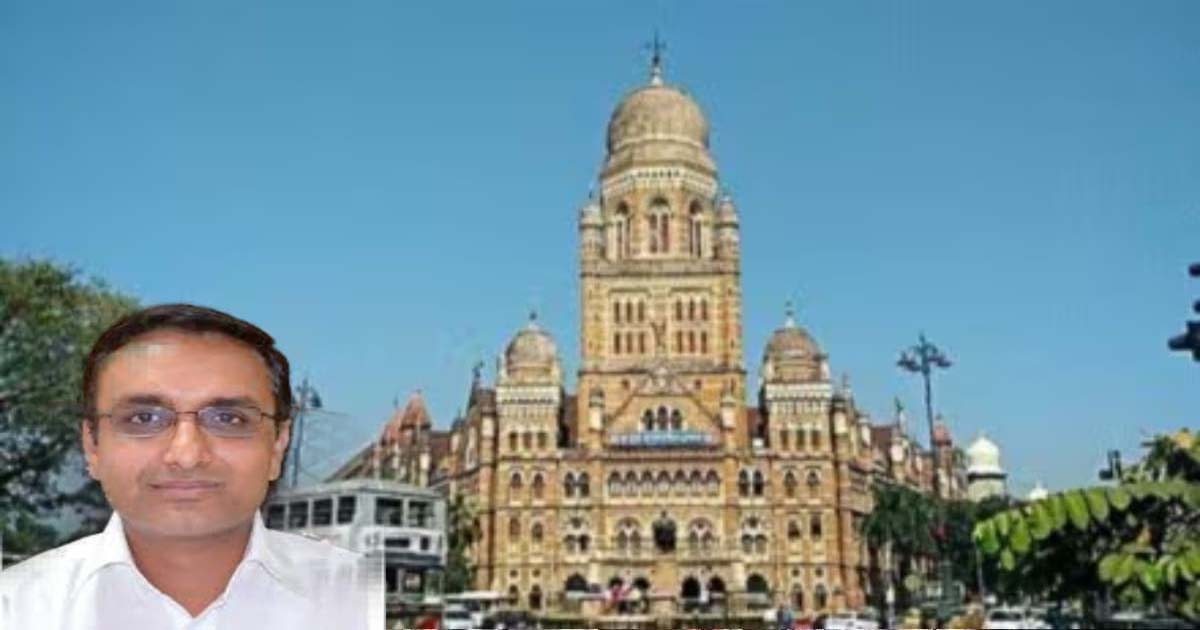
The transfer comes after an exposé revealed alleged corruption involving the reshuffling of over 160 engineers in the Brihanmumbai Municipal Corporation (BMC), which was subsequently stayed by the government.
A complaint was filed by activist Sanjay Satam to Municipal Commissioner Bhushan Gagrani, alleging that Saini was charging between ₹5 lakh and ₹40 lakh to transfer engineers.
Saini, a 2007-batch IAS officer, had been posted in the BMC since March 2024.
Avinash Dhakne, a 2017-batch IAS officer, previously served as the member secretary of the Maharashtra Pollution Control Board (MPCB) and has taken charge.
The transfers followed demands from activists for action, with Galgali thanking Chief Minister Devendra Fadnavis for the decision.
Activist Satam stated that the transfer is insufficient and called for a departmental and Anti-Corruption Bureau (ACB) investigation into the matter.
-

 Crime3 years ago
Crime3 years agoClass 10 student jumps to death in Jaipur
-

 Maharashtra1 year ago
Maharashtra1 year agoMumbai Local Train Update: Central Railway’s New Timetable Comes Into Effect; Check Full List Of Revised Timings & Stations
-

 Maharashtra1 year ago
Maharashtra1 year agoMumbai To Go Toll-Free Tonight! Maharashtra Govt Announces Complete Toll Waiver For Light Motor Vehicles At All 5 Entry Points Of City
-

 Maharashtra1 year ago
Maharashtra1 year agoFalse photo of Imtiaz Jaleel’s rally, exposing the fooling conspiracy
-

 National News1 year ago
National News1 year agoMinistry of Railways rolls out Special Drive 4.0 with focus on digitisation, cleanliness, inclusiveness and grievance redressal
-

 Maharashtra1 year ago
Maharashtra1 year agoMaharashtra Elections 2024: Mumbai Metro & BEST Services Extended Till Midnight On Voting Day
-

 National News1 year ago
National News1 year agoJ&K: 4 Jawans Killed, 28 Injured After Bus Carrying BSF Personnel For Poll Duty Falls Into Gorge In Budgam; Terrifying Visuals Surface
-

 Crime1 year ago
Crime1 year agoBaba Siddique Murder: Mumbai Police Unable To Get Lawrence Bishnoi Custody Due To Home Ministry Order, Says Report



